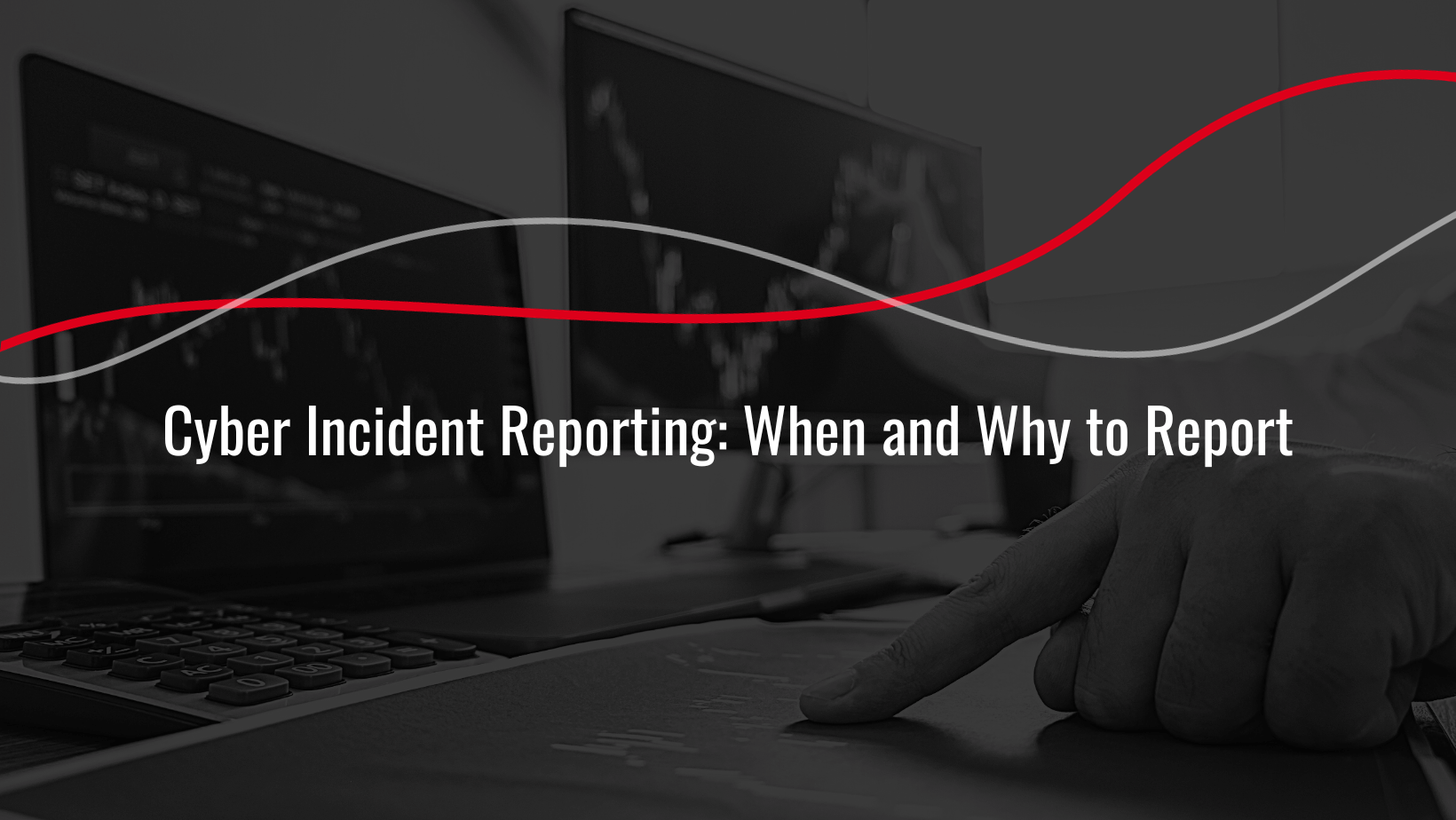Ransomware Trends for 2022
Ransomware has become one of the biggest threats to businesses and individuals worldwide. In this article, we will explore the trends in ransomware attacks in 2022.
 Introduction
Introduction Cyber threats have become increasingly common, and companies take the necessary measures to protect their sensitive information. One of these steps includes cyber incident reporting. Cyber incident reporting is the process of notifying relevant authorities about suspected or confirmed cyber threats. Failure to report cyber incidents can lead to legal implications, financial loss, or reputational damage. In this article, we will discuss the importance of cyber incident reporting and when it is appropriate to report a cyber incident.
Cyber incident reporting involves notifying proper authorities about suspected or confirmed cyber threats, such as data breaches, malware infections, or ransomware attacks. When a company experiences a cyber-attack, data breach, data leak, or any other situation in which sensitive information is exposed, it is required by law to report the incident to the appropriate parties. These parties may include stakeholders, law enforcement, affected customers, business partners, and government officials.
Most incident reports will include information about the time and circumstances of the incident, the parties involved, the types of data compromised, and the overall scope of the breach. The incident report is then used for analysis, possibly leading to revised safety procedures, stricter compliance guidelines, or other measures to mitigate risks better.
Notifying relevant authorities of cyber incidents is essential for tracing the origin of security breaches and fixing them. It might be easier to respond successfully to a cyber-attack if the breadth and type of the attack are not reported.
Moreover, incident reporting timelines can aid in meeting regulatory compliance standards for businesses. Companies in many countries must disclose cyber incidents immediately by law or regulation. A company's reputation, finances, and potential success could all suffer from a failure to follow these rules and laws.
Cybersecurity can be enhanced if issues are reported. More information is needed to defend against cyber threats effectively. By disclosing details of cyberattacks, businesses, and people can aid others in their efforts to map the landscape of cyber threats, pinpoint entry points used most frequently, and build resilient defenses.
Organizations should disclose cyber incidents within a specified timeframe (typically within 72 hours), even if not all information is accessible. This is because having as much information as possible about cyber incidents can assist in getting support. To notify all parties involved, a company may need to update its report more than once as the situation develops. Therefore, it is best to start this process as soon as possible.
The Department of Homeland Security (DHS) advises cybercrime victims to report events as soon as possible if they fear the following:
While reporting cyber incidents is undeniably crucial, cybersecurity threats can arise anytime, so organizations must be well-prepared to measure and respond to incidents. This is where Cybersecurity Key Performance Indicators (KPIs) come into play. By taking an approach through KPIs, companies can enhance their cybersecurity practices. Effectively report incidents, thus safeguarding sensitive information and minimizing risks. This proactive posture can contribute to better cybersecurity and incident reporting practices, helping organizations protect their sensitive data and mitigate risks effectively. For more insights on the importance and utilization of KPIs, please read our article "Cybersecurity KPIs to React Cyber Incidents Faster."
Cyber-attacks are a severe and massive concern in today's world, and this is an undeniable fact that is both frightening and unsettling. Learning the ins and outs of when and how to report these terrifying crimes is crucial. Notifying authorities as soon as possible in a cyber-attack can help prevent further damage and minimize its harmful effects. Therefore, staying alert and observant, keeping systems up to date, and immediately reporting any suspicious or out-of-the-ordinary activity are critical components of cyber security.